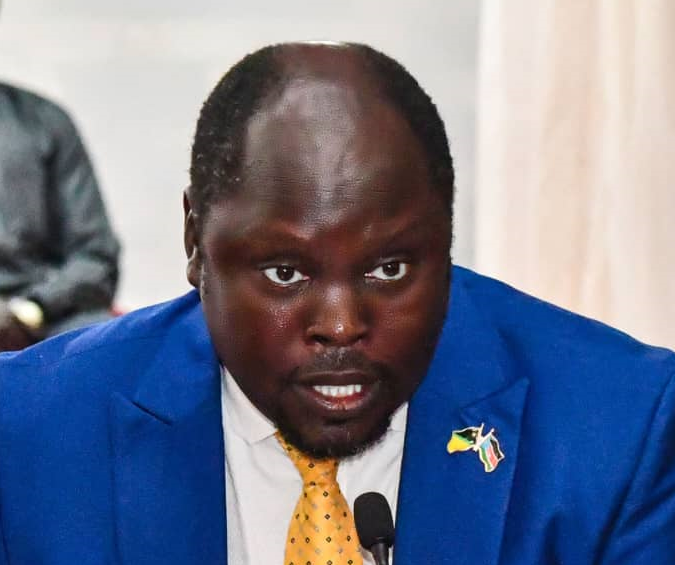
Hon. Changkuoth Bichiock, the Chairperson of the Finance Committee - COURTESY
The Parliamentary Committee on Finance is pushing for the return of the management of the NilePet from the Presidency to the Petroleum Ministry due to what it described as a lack of capacity within the state-owned oil firm.
This is the second time the committee has recommended the transfer of management and responsibility for the oil corporation, from the Office of the President.
According to some legislators, the responsibility for Nilepet should be transferred for proper policy coordination and execution.
Last year, a similar recommendation was also made by the parliament.
This was after the Minister of Petroleum said he was being sidelined in the management of the state-owned oil firm which allegedly reports directly to the Office of the President.
Puot Kang Chol revealed that Nilepet is being managed by the Presidential Affairs Minister Dr. Barnaba Marial Benjamin, unless on technical matters.
Kang also said the alleged overlapping of duties makes it challenging for him to answer inquiries put forth by the cabinet and the parliament.
The second recommendation was made during the second reading of the 2023/2024 fiscal year budget in Juba on July 26.
Changkuoth Bichiock, the chairperson of the finance committee at the August House said Nilepet is not contributing to the county’s budget.
“The committee recommends the Nile Corporation Company be returned to the Ministry of Petroleum for effective and transparent policy coordination and implementation,” Changkuoth said.
“They [NilePet and Ministry of Petroleum] don’t coordinate issues together and their mother place should be the Ministry of Petroleum.”
“They are having a lot of issues, when the minister of petroleum is going for a meeting somewhere, they don’t go together with Nilepet, because Nilepet is part of the presidency.”
“By 2027 Nilepet should start taking some oil wells, but until now they have no capacity.”
“The 8% that they are getting is going to their salaries, they have nothing, they have zero percent. They even don’t contribute anything to the budget,” he said.
“How do you think that this Nilepet tomorrow will take over our oil field and now even not contribute a single cent to the resource envelope? if you give them, that means whatever they will do will go to their salaries.”
“They have over 1,000 staff, so for coordination purposes, they should coordinate with the Ministry of Petroleum and not with the presidency.”
However, Mary Ayen, the deputy speaker of the Council of States disagreed that Nilepet should be under the Ministry of Petroleum.
“Nilepet should remain independent. We need Nilepet to grow madam speakers to the standard of Chevron, Total, and other international and global oil-producing companies,” Ayen said.
“Since 2011 when NIlepet was incorporated to be a full South Sudanese company, the shares of South Sudan remained at 8%, up to now it is still 8%. Simply because it was not given the space to be free so that they are creative and they act as an oil producing company.”
Section 12 of the Petroleum Act 2012 provides that the Ministry of Petroleum shall be responsible for the management of the petroleum sector in accordance with the provisions of the transitional constitution.
Meanwhile, during the reading of last year’s budget, the Finance Committee in Parliament recommended the state-owned oil firm be moved back to Petroleum Ministry.
The Nile Petroleum Corporation, known simply as Nilepet, was formed to ensure the people of South Sudan are represented in their country’s oil sector.
In 2011, it took over from the state-owned oil company of Sudan, Sudapet, upon the independence of South Sudan.
The corporation is active across the petroleum value chain, with a stake in all three operating companies, and a significant presence in the midstream and downstream sectors.
Currently, under the office of the president, it holds shares in each of the joint venture companies set up to extract oil, while also holding primary responsibility for importing refined fuel.
The associate ventures include Nilepet, Spet Engineering, Niyat, Nile Drilling, Nile Delta, and Nile Data System, among others.
Support Eye Radio, the first independent radio broadcaster of news, information & entertainment in South Sudan.
Make a monthly or a one off contribution.
Copyright 2024. All rights reserved. Eye Radio is a product of Eye Media Limited.